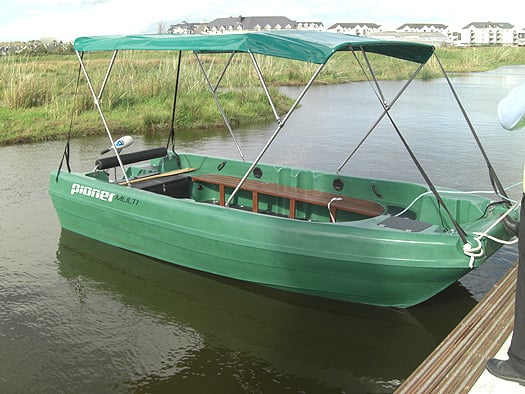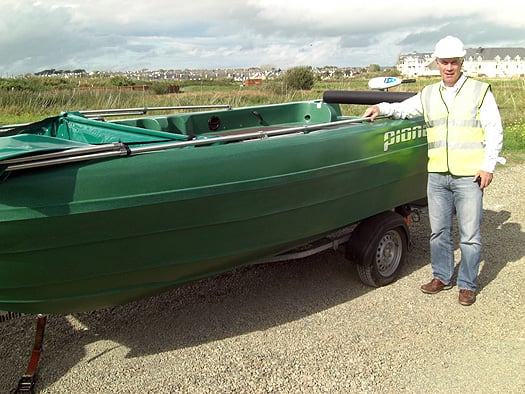Displaying items by tag: Dunfanaghy
Safari Boats Order Boosts Kerry Boat Building Firm
Kerry Boat-builder O'Sullivan's Marine (OSM) is bucking the trend in the depressed marine industry. The Tralee firm have a busy order book and report strong demand for its traditional lake boat marque but it also has interest in more exotic boats too for the emerging nature tourism market.

Tried and tested, the new Safari boats are ready for Lee Valley
The first of the orders processed in Tralee is the supply of four Pioner Multi boats with Motor Guide 24v Electric Outboards for the local Lee Valley Development, a new eight hectare (20 acre) eco-tourism development comprising a Nature Park. The four boats will be used for safari-style boat rides.
'We carried out water trials yesterday, all is in order and the fully fitted out boats are being delivered this week', says managing director Brian O'Sullivan.

OSM's Brian O'Sullivan with one of the new Pioner boats
OSM, a member of the Irish Marine Federation, is also supplying two lake boats to Creeslough Angling Association in Donegal. Six Irish built boats have also been ordered by Dunfanaghy Angling Association in Donegal. Five more lake boats are also going to Waterville, Co. Kerry. All orders are for November delivery! Recession? What recession?
OSM have a selection of used craft on the boats for sale website. See them here





























































